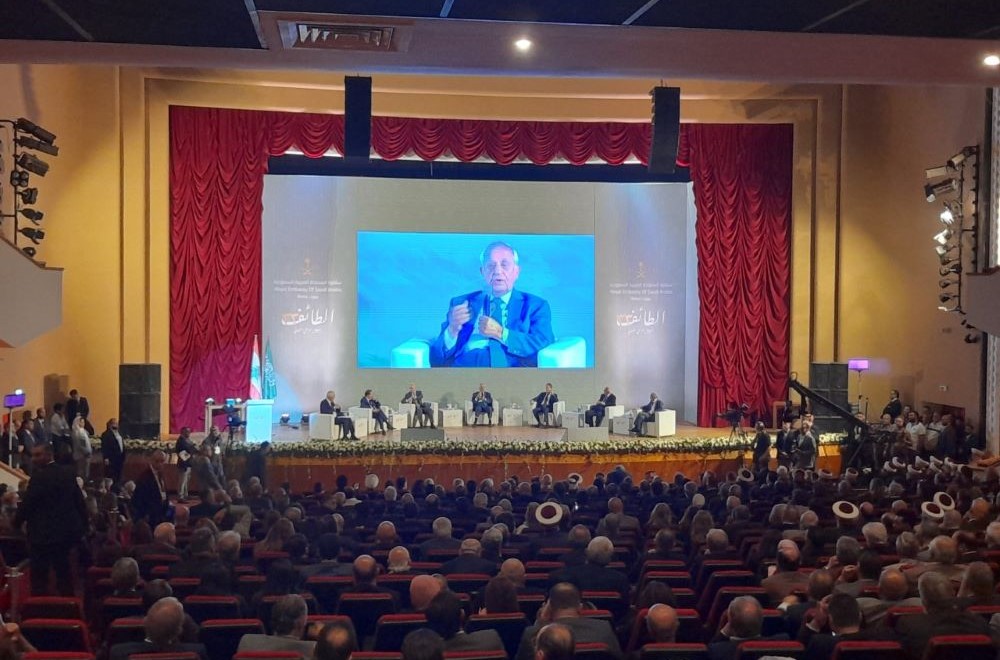BEIRUT: Lebanese political figures, some of whom participated in the Taif Agreement that ended the Lebanese war in 1989, praised Saturday Kuwait's prominent role in reaching the agreement and supporting Lebanon in various stages. This came during the national conference on the 33rd anniversary of the conclusion of the Taif Agreement, which was called for by the Ambassador of the Kingdom of Saudi Arabia, Walid Al-Bukhari, at the (UNESCO Palace) in Beirut. In remarks to KUNA, Former Deputy Speaker of Lebanon's Parliament Elie Ferzli said that Kuwait has a distinguished role in taking care of Lebanon at all levels, and the Lebanese people do not forget the stances of Kuwait, its leadership and people at all stages.
For his part, former MP Talal Al-Mara'bi, who participated in the Taif Agreement, stressed that Kuwait has always played a key role in saving Lebanon from its ordeal, and it played a major part in this agreement. He pointed out that Kuwait "before and after that agreement continues to play a key role in preserving Lebanon's unity and diversity." In turn, former MP Boutros Al-Harb, who also participated in the Taif Agreement, said, "It must be recalled that the six-party committee that preceded the Taif Agreement was chaired at that time by the Kuwaiti Foreign Minister at the time, the late Amir of Kuwait, Sheikh Sabah Al-Ahmad Al-Jaber Al-Sabah, who made very great efforts to resolve the issue."
Head of the Progressive Socialist Party Walid Jumblatt told KUNA that "ignoring the struggle of the Lebanese who contributed to reaching the Taif Agreement is a mistake," stressing its importance in ending the war in Lebanon. He stressed the necessity of implementing the agreement before discussing its amendment, pointing to the items that have not been implemented so far from the agreement, such as the abolition of political sectarianism and the establishment of a Senate. The Saudi ambassador, Walid Al-Bukhari, affirmed that the conference reflected the interest and keenness of the Kingdom's leadership to preserve Lebanon's security and stability.
Caretaker Prime Minister Najib Mikati affirmed, in a statement on the sidelines of the celebration, the continuation of the Taif Agreement, considering it "the most suitable agreement to implement." The Taif Agreement was the one reached by the Lebanese parties at a meeting in the Saudi city of Taif in September 1989, which produced what is known as the Lebanese National Accord Document, which later became the Lebanese constitution after a war that ravaged the country for 15 years.











